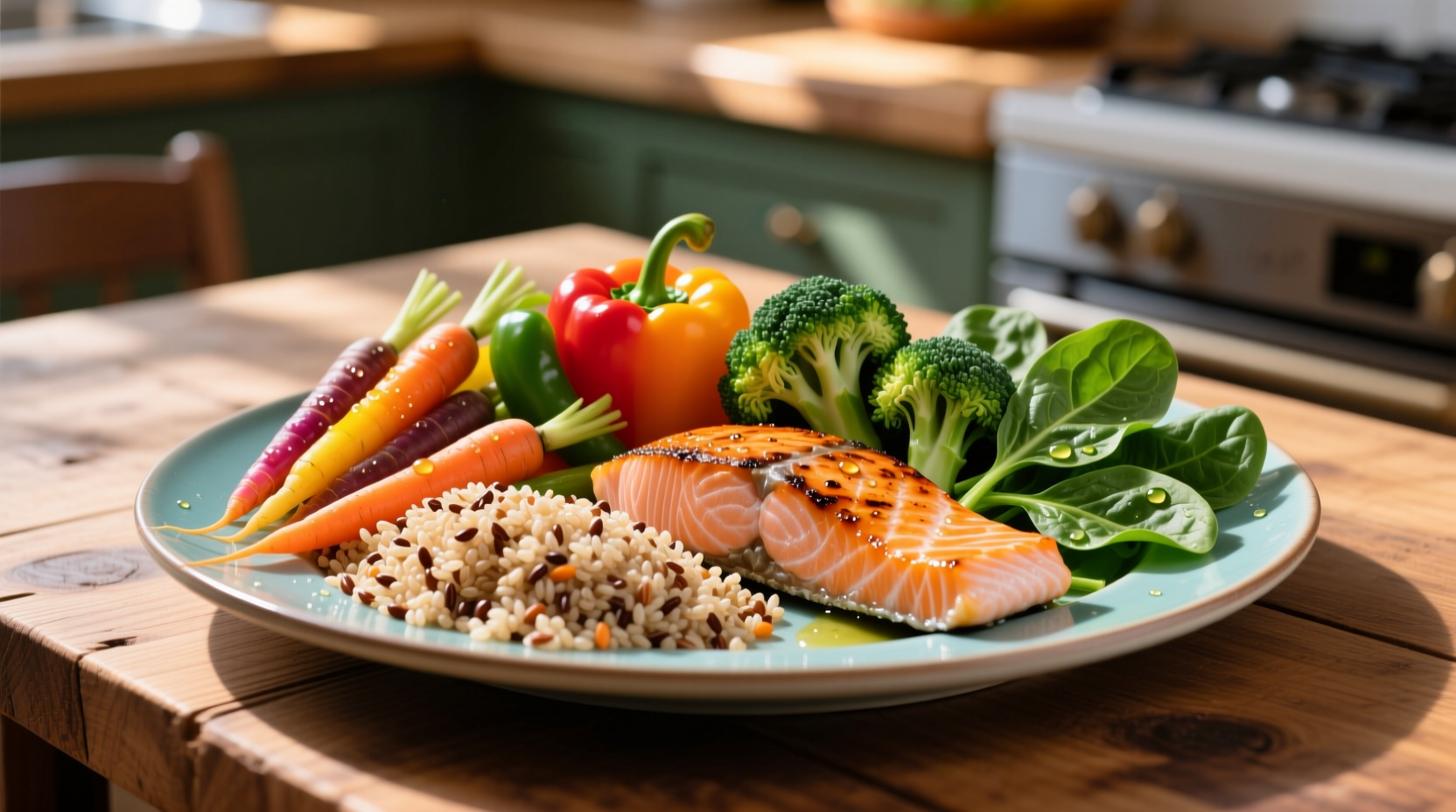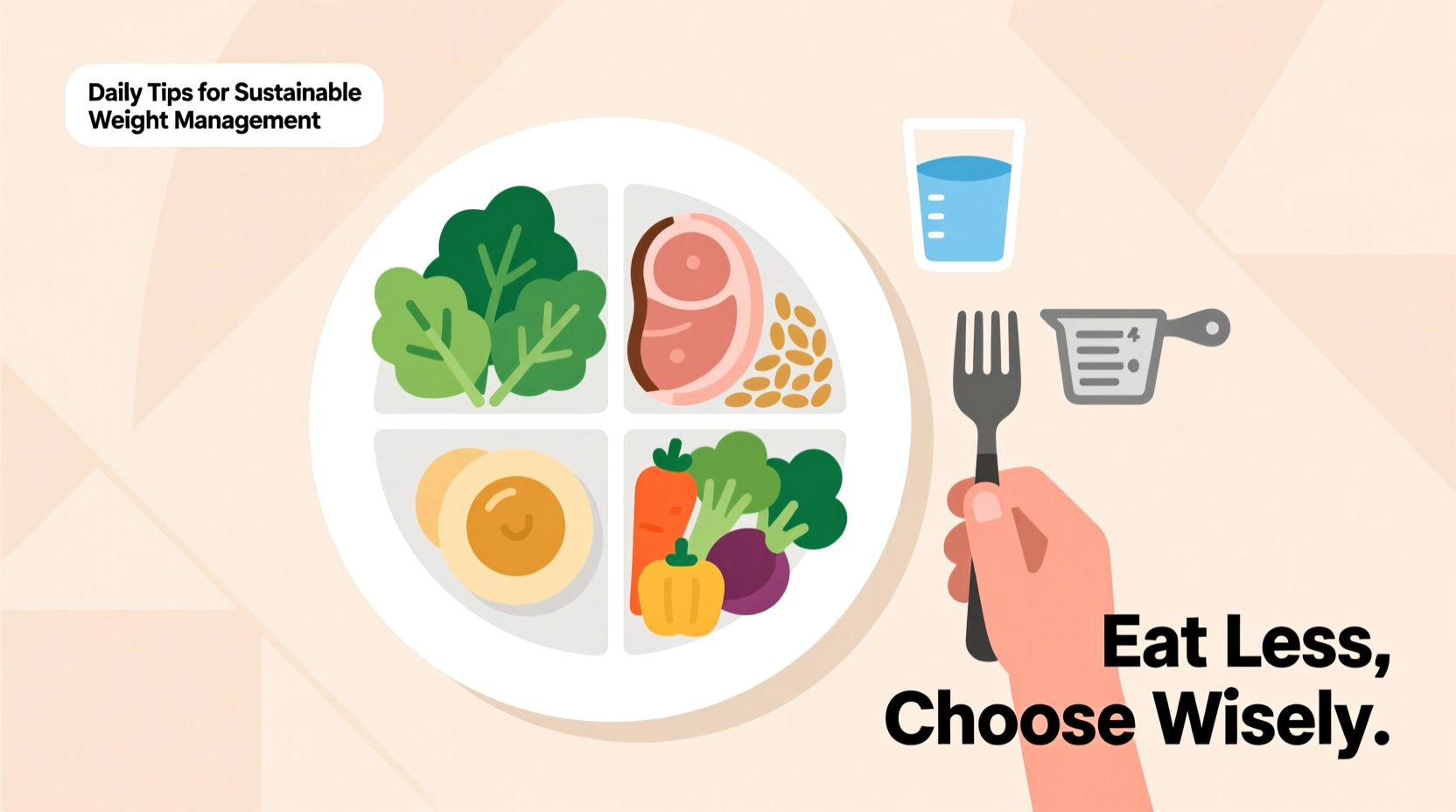Forget fad diets and extreme restrictions. Sustainable weight loss happens when you work with your body's natural systems, not against them. As a culinary expert who's helped thousands transform their relationship with food, I've seen firsthand how strategic food choices—not deprivation—create lasting results. This guide reveals the science-backed eating patterns that help you lose weight while enjoying delicious, satisfying meals.
The Science Behind Food-Based Weight Management
Weight loss fundamentally requires consuming fewer calories than you burn. But not all calories affect your body equally. Research from the Harvard T.H. Chan School of Public Health shows that food quality significantly impacts satiety, metabolism, and fat storage. Processed foods trigger different hormonal responses than whole foods, often leading to overconsumption.
When you choose nutrient-dense foods, you naturally reduce calorie intake while feeling satisfied. A landmark study published in The American Journal of Clinical Nutrition found participants eating whole foods consumed 500 fewer calories daily without tracking—simply because whole foods require more chewing, slow digestion, and trigger fullness signals more effectively.

Top Food Categories That Support Weight Loss
High-Protein Powerhouses
Protein increases thermogenesis (calorie burning during digestion) by 15-30%, compared to 5-10% for carbs and 0-3% for fats. This NIH research confirms protein's dual role in preserving muscle mass while boosting metabolism during weight loss.
Best choices:
- Eggs (6g protein per large egg)
- Greek yogurt (17g per 6oz serving)
- Salmon (22g per 3oz)
- Lentils (18g per cooked cup)
Fiber-Rich Vegetables
Non-starchy vegetables provide volume with minimal calories. The water and fiber content creates physical fullness in your stomach. According to the Dietary Guidelines for Americans, increasing vegetable intake correlates with lower body weight across diverse populations.
| Vegetable | Calories per Cup | Fiber (g) | Best Preparation |
|---|---|---|---|
| Broccoli | 31 | 2.4 | Steamed or roasted |
| Spinach | 7 | 0.7 | Raw or lightly sautéed |
| Asparagus | 27 | 2.8 | Grilled or roasted |
| Brussels Sprouts | 38 | 3.3 | Roasted with olive oil |
Practical Eating Strategies That Work
Mindful Eating Techniques
The American Psychological Association recognizes mindful eating as an effective weight management strategy. Simple practices like:
- Eating without distractions (no TV or phones)
- Chewing thoroughly (20-30 times per bite)
- Pausing halfway through meals
can reduce calorie intake by 15-20% without conscious restriction. Participants in a APA study maintained weight loss for 12 months using these techniques alone.
Strategic Meal Timing
While total daily calories matter most, research shows front-loading calories supports better weight management. A study in The American Journal of Clinical Nutrition found participants eating larger breakfasts and lunches with smaller dinners lost 25% more weight than those doing the opposite—despite identical calorie counts.
Foods to Limit for Better Results
Not all foods work equally for weight management. These items trigger biochemical responses that promote fat storage and increased hunger:
- Sugar-sweetened beverages: Liquid calories don't trigger fullness signals. Replacing just one 12oz soda daily with water could prevent 15 pounds of weight gain annually.
- Refined carbohydrates: White bread, pastries, and most breakfast cereals cause blood sugar spikes followed by crashes that trigger hunger.
- Processed "low-fat" products: Often loaded with sugar to compensate for flavor loss, these typically contain more calories than their full-fat counterparts.
Your 1-Day Weight Loss Food Plan
This sample plan provides approximately 1,600 calories with balanced nutrition. Adjust portions based on your individual needs:
- Breakfast: 2 eggs with spinach and mushrooms + 1/2 avocado
- Snack: Greek yogurt with berries and chia seeds
- Lunch: Large salad with mixed greens, grilled chicken, chickpeas, and olive oil dressing
- Snack: Apple with almond butter
- Dinner: Baked salmon with roasted Brussels sprouts and quinoa
Overcoming Common Challenges
Weight loss plateaus and cravings are normal. Here's how to navigate them:
- Hunger between meals: Increase protein and fiber at main meals. A study in Nutrition Journal found adding 10g of fiber reduced hunger by 22%.
- Eating out: Choose grilled proteins with double vegetables instead of starches. Request dressings/sauces on the side.
- Plateaus: Recalculate your calorie needs as you lose weight—your body requires fewer calories at lower weights.
Making Changes Last
The National Weight Control Registry tracks over 10,000 people who've maintained significant weight loss. Their research shows successful maintainers share these food habits:
- Eat breakfast consistently (90% of registrants)
- Monitor their weight weekly (75%)
- Follow consistent eating patterns (no extreme weekend deviations)
- Include regular physical activity (though food changes drove initial loss)
Remember: The goal isn't perfection but progress. Small, consistent changes create remarkable results over time. Start with one food swap today—like replacing sugary drinks with water—and build from there.
Frequently Asked Questions
Can I lose weight eating carbohydrates?
Yes, weight loss depends on total calories and food quality, not carb elimination. Focus on complex carbohydrates like oats, quinoa, and sweet potatoes in appropriate portions. Research shows moderate-carb diets support sustainable weight loss better than extreme restriction for most people.
How quickly will I see results from food changes alone?
Most people notice changes within 2-4 weeks when consistently applying these strategies. Initial water weight loss may occur faster, but sustainable fat loss typically averages 1-2 pounds weekly. Remember that non-scale victories like better energy and clothing fit often precede the scale moving.
Do I need to count calories to lose weight through food?
Calorie counting isn't necessary for everyone. Many achieve results through portion awareness and food quality improvements. The National Institutes of Health confirms that focusing on whole foods naturally reduces calorie intake by 300-500 daily for most people without tracking. Use tracking temporarily if needed, but aim to develop intuitive eating skills.
Are cheat meals acceptable when losing weight through food?
Strategic flexibility supports long-term success. Research in Obesity Reviews shows planned indulgences (10-15% of weekly calories) prevent binge eating and improve adherence. The key is returning to regular patterns immediately after—no "cheat days" that undo progress. Focus on overall patterns rather than single meals.











 浙公网安备
33010002000092号
浙公网安备
33010002000092号 浙B2-20120091-4
浙B2-20120091-4